The reflection of the Eastern Catholic Churches on the New Evangelization
Monday, 07 November 2011, 18:43 This time, the annual meeting of the Eastern Catholic bishops in Europe has gathered in Oradea (Romania) about 70 participants, including bishops and experts, at the invitation of the Bishop of Oradea-Mare, H. Ex. Rev. Virgil Bercea. The theme of the meeting was the contribution of the Eastern Catholic Churches in Europe to the new evangelization. The meeting was a moment of community discernment aimed at identifying the adequate elements to meet the challenge of proclaiming Christ in the current socio-cultural context. Its results will be summarized in a report that will be delivered to the Secretary of the Synod of Bishops in view of the 13th Ordinary General Assembly of the Synod of Bishops (Rome, 7-28 October 2012).14th meeting of the Bishops of the Eastern Catholic Bishops
Oradea, Romania, 3-6 November 2011
The New Evangelization and the Eastern Catholic Churches On the issue of new evangelization, two orders of reflections have been the focus of our work. On the one hand, the fact that the Eastern Catholic Churches in Europe have a specific and unique contribution to make to the current debate in the Catholic Church and to the whole process, already underway, of the new evangelization. On the other hand, we have seen that they must also be aware of the challenges that the modern world brings to our mission. The crisis the world is living today is essentially anthropological in its nature, partly as a result of secularism, which led to the unjustified exclusion of God, both in the public and in the private sphere, thereby leading to a serious confusion in terms of personal identity, so that modern man often becomes unable to justify himself and find an orientation to his existence. In addition, the Eastern Catholic Churches feel confronted with these problems and, after having demonstrated the vitality of a newfound freedom, about two decades ago, now they feel challenged by these global phenomena, especially as they affect many of their faithful migrants, thus placing their respective Churches in front of new pastoral problems that require original and appropriate solutions. In his address, Mgr. Salvatore Fischella, President of the Pontifical Council for the Promotion of the New Evangelization, has highlighted some of the tasks facing the new evangelization: strengthening the sense of belonging which generates a strong identity; having attention to our terminology and have a special care for “what is beautiful”, for the liturgy, but also for catechesis and permanent formation. Finally, in the face of different forms of selfishness that now seem to have the upper hand, the new evangelization should encourage witnesses of solidarity and generosity, i.e. charity, through which we can express God's love for all. The new evangelization is not made up only of words, but it implies the creation of visible signs that be able to testify and put into practice in a tangible way the presence and mission of the Church in history. An example of this dynamic mediation of the Christian message was offered by Fr. Borys Gudziak, Rector of the Ukrainian Catholic University (ucu.edu.ua/eng/), who explained to the participants the very original project of the construction of the new Catholic University. The basic idea is to create a campus where theology is translated into architecture, spirituality is lived out in the community and evangelization is implemented as in a pilgrimage. Jesuit Fr. Marko Rupnik, a world-famous artist and Director of the Aletti Center, presented the contribution of Byzantine art in the context of the new evangelization. For this Slovenian artist, it is very important to understand the reality in which the art inserts and the function it has assumed. Unfortunately, "The art has migrated from the shrine to the palace ending up in the art galleries; it does not generate devotion but only admiration of the artist. At the same time, the art has lost its function as a symbol, putting forward the idea of concept but totally disconnected from the reality of daily life." According to the Jesuit, also the art should be able to transmit the faith, life and love. In short, what happened to the art reflects what happened to the Christian faithful, who do not know how to live their baptism in everyday life, how to live their being regenerated as sons and daughters of God, how to show a humanity inhabited by God, in short, how to show what it means to be redeemed. Prof. Cesare Alzati, a professor at the Catholic University of the Sacred Heart of Milan, in the light of the history and nature of the Eastern Catholic Churches, has identified some aspects that could be a stimulus to the rest of the Christian world. First, going beyond one’s confessional frontiers, not losing one’s identity, but open a dialogue with the other denominations that share the same challenges of secularization, i.e. the separation between the supernatural and present life. A particularly important aspect is the liturgy of the Eastern Catholic Churches. In this sense, the new evangelization of Europe "has as its inevitable stage the reaffirmation of the centrality of the experience of mystery, through which man can live in history his encounter with God." In this way, even witness has a sort of "cultic teaching" as its point of departure, which gives rise to "a specific anthropology, constitutionally religious and rooted in the mystery of Christ." It has its origin in the living experience of worship and brings with it a specific way of being Christian in history: being witnesses of the mystery. Faced with a growing secularism and consumerism in Eastern European societies, the task of the Church is, according to Mgr. Cyril Vasil, Secretary of the Congregation of Eastern Churches, to offer to civil society, to limit the disastrous effects of a wild capitalism, the experience of the Social Doctrine of the Church "as an antidote to the poisonous effects of market economy." He also recalled that many faithful of the Eastern Catholic Churches have migrated for economic reasons, and this leads to the need to review our pastoral action in a missionary key and in the light of the current social context. In short, the pastoral contact with the faithful immigrants "should not be limited only to the service of divine worship", but should cover their living conditions. They should not feel abandoned by their own Church. Another challenge is the "practical atheism" which is spreading out. Those to whom the Church is called to bring the Good News are people who are basically ignorant from a religious point of view, and lack of solid points of cultural reference. The question then is: how to arouse their interest in things that exceed their limited material and utilitarian horizon? Like other speakers, also the Secretary of the Congregation of Eastern Churches has stressed the human research of joy, beauty, decorum and solemnity. For this very reason, "the deep and mystical beauty of our liturgical celebrations can be a boost to the profound search for truth." At the conclusion of the meeting, Fr. Alexandru Buzalic, Professor of Theology at the University of Cluj-Napoca, focused on the presence of lay realities in the Eastern Catholic Churches. This presence is not new, but in the dark years of communism, these realities have suffered the same fate of their pastors. Today, however, along with the revival of old associations as ASTRU (the local Catholic Action), other associations have been created. All of them want to be actively involved in the field of pastoral care, and integrate the work carried out by the clergy in various areas, particularly in the teaching of religion and in the area of diaconate. The works were carried out in an atmosphere of cordiality and friendship, and have been enriched by some moments of prayer and the daily celebration of the Eucharist together with the local community, including the faithful of Greek-catholic rite and those of Latin rite. The liturgical celebrations, always very well cared for and intensely participated, have shown that the words exchanged in the meeting were also an expression of a lived experience. Particularly appreciated was the presence and contribution of the bishops of Latin rite of the Romanian Bishops' Conference, and the hospitality of the Latin rite Bishop of Oradea, Mgr. Laszlo Bocskei. The 2012 meeting will be held in Zagreb from the 8th to the 11th of November, to mark the fourth centenary of the union of the Croatian Catholic Church of byzantine rite with the Church of Rome, at the invitation of Mgr. Nikola Kekić, Bishop of Križevci.
Thierry Bonaventura, CCEE Media Officer
LATEST NEWS

We can imagine what the prayer of the prisoners in the Russian torture centers in the Ukrainian Kharkiv region was like – Head of the UGCC on the 206th day of the war 17 September
A vast cemetery, a mass burial, was found near the city of Izyum, in which more than 400 innocently killed and tortured people have already been...
-
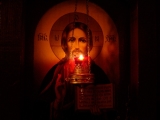 Глава УГКЦ у 158-й день війни: «Нехай Господь прийме з уст нашої Церкви псалми та моління за всіх тих, які особливо просять нашої молитви»
Глава УГКЦ у 158-й день війни: «Нехай Господь прийме з уст нашої Церкви псалми та моління за всіх тих, які особливо просять нашої молитви»
-
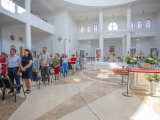 «Сила, яка походить із вірності Христові, є стержнем, який ніхто не може зламати», – Блаженніший Святослав
«Сила, яка походить із вірності Христові, є стержнем, який ніхто не може зламати», – Блаженніший Святослав
-
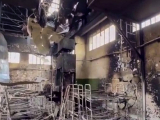 Глава УГКЦ у 157-й день війни: «В ім’я Боже ми засуджуємо звірства в Оленівці і світ повинен це засудити як особливий вияв дикості й жорстокості»
Глава УГКЦ у 157-й день війни: «В ім’я Боже ми засуджуємо звірства в Оленівці і світ повинен це засудити як особливий вияв дикості й жорстокості»
-
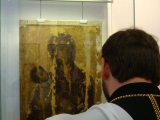 «Боже, почуй наш плач і поспіши нам на допомогу і порятунок!», – Глава УГКЦ у 156-й день війни
«Боже, почуй наш плач і поспіши нам на допомогу і порятунок!», – Глава УГКЦ у 156-й день війни
-
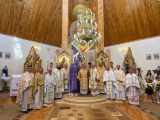 «Бог йому дав серце і душу українського народу»: відбулася щорічна проща до Прилбичів з нагоди уродин митрополита Андрея Шептицького
«Бог йому дав серце і душу українського народу»: відбулася щорічна проща до Прилбичів з нагоди уродин митрополита Андрея Шептицького
-
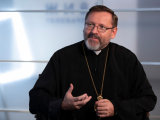 Глава УГКЦ: «Я горджуся українськими патріотами, які без найменшої краплі ненависті готові захищати своє»
Глава УГКЦ: «Я горджуся українськими патріотами, які без найменшої краплі ненависті готові захищати своє»
-
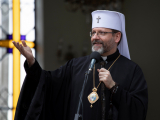 Блаженніший Святослав закликав українську молодь скласти присягу на вірність Христові
Блаженніший Святослав закликав українську молодь скласти присягу на вірність Христові
-
 Глава УГКЦ у 155-й день війни: «Помолімося, щоб не втратити скарбу віри князя Володимира»
Глава УГКЦ у 155-й день війни: «Помолімося, щоб не втратити скарбу віри князя Володимира»
-
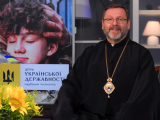 Блаженніший Святослав у День державності України: «Наша Держава – це для нас питання життя або смерті»
Блаженніший Святослав у День державності України: «Наша Держава – це для нас питання життя або смерті»
-
 Глава УГКЦ у 154-й день війни: «Нехай Господь Бог прийме у свої вічні обійми журналістів, які віддали за правду своє життя в Україні»
Глава УГКЦ у 154-й день війни: «Нехай Господь Бог прийме у свої вічні обійми журналістів, які віддали за правду своє життя в Україні»
-
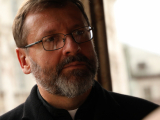 Глава УГКЦ у 153-й день війни: «Принесімо наш біль перед Боже обличчя і будьмо певні, що Він нас вислухає»
Глава УГКЦ у 153-й день війни: «Принесімо наш біль перед Боже обличчя і будьмо певні, що Він нас вислухає»
-
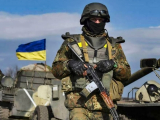 Глава УГКЦ у 152-й день війни: «Помолімся молитву заступництва за наших воїнів»
Глава УГКЦ у 152-й день війни: «Помолімся молитву заступництва за наших воїнів»
-
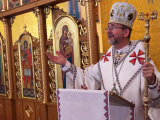 «Віруюча людина не може бути байдужою, коли бачить страждання іншої людини», – владика Богдан Дзюрах
«Віруюча людина не може бути байдужою, коли бачить страждання іншої людини», – владика Богдан Дзюрах
-
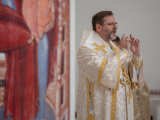 «Серед нашого страждання творімо простір для прояву Божої всемогутності», – Глава УГКЦ у 6-ту неділю після П’ятдесятниці
«Серед нашого страждання творімо простір для прояву Божої всемогутності», – Глава УГКЦ у 6-ту неділю після П’ятдесятниці
-
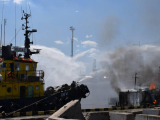 Глава УГКЦ у 151-й день війни: «Російське віроломство ми перемагаємо силою любові до нашої Батьківщини»
Глава УГКЦ у 151-й день війни: «Російське віроломство ми перемагаємо силою любові до нашої Батьківщини»

